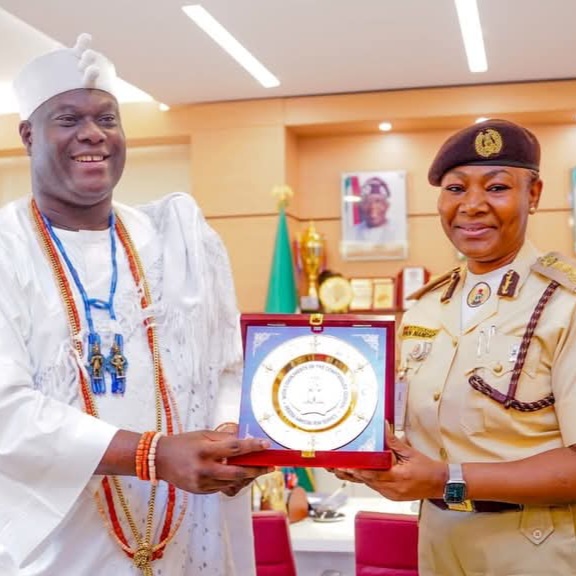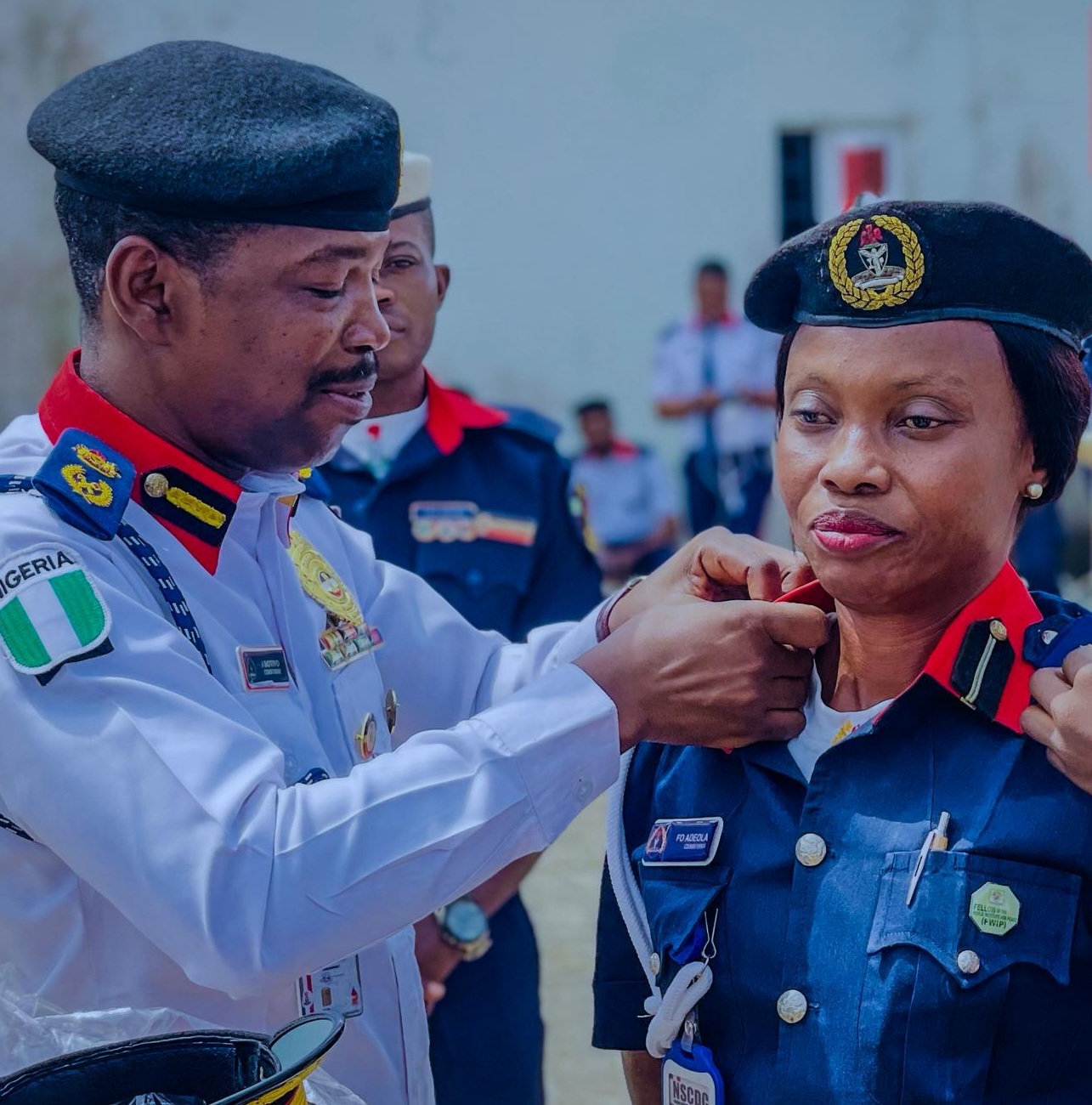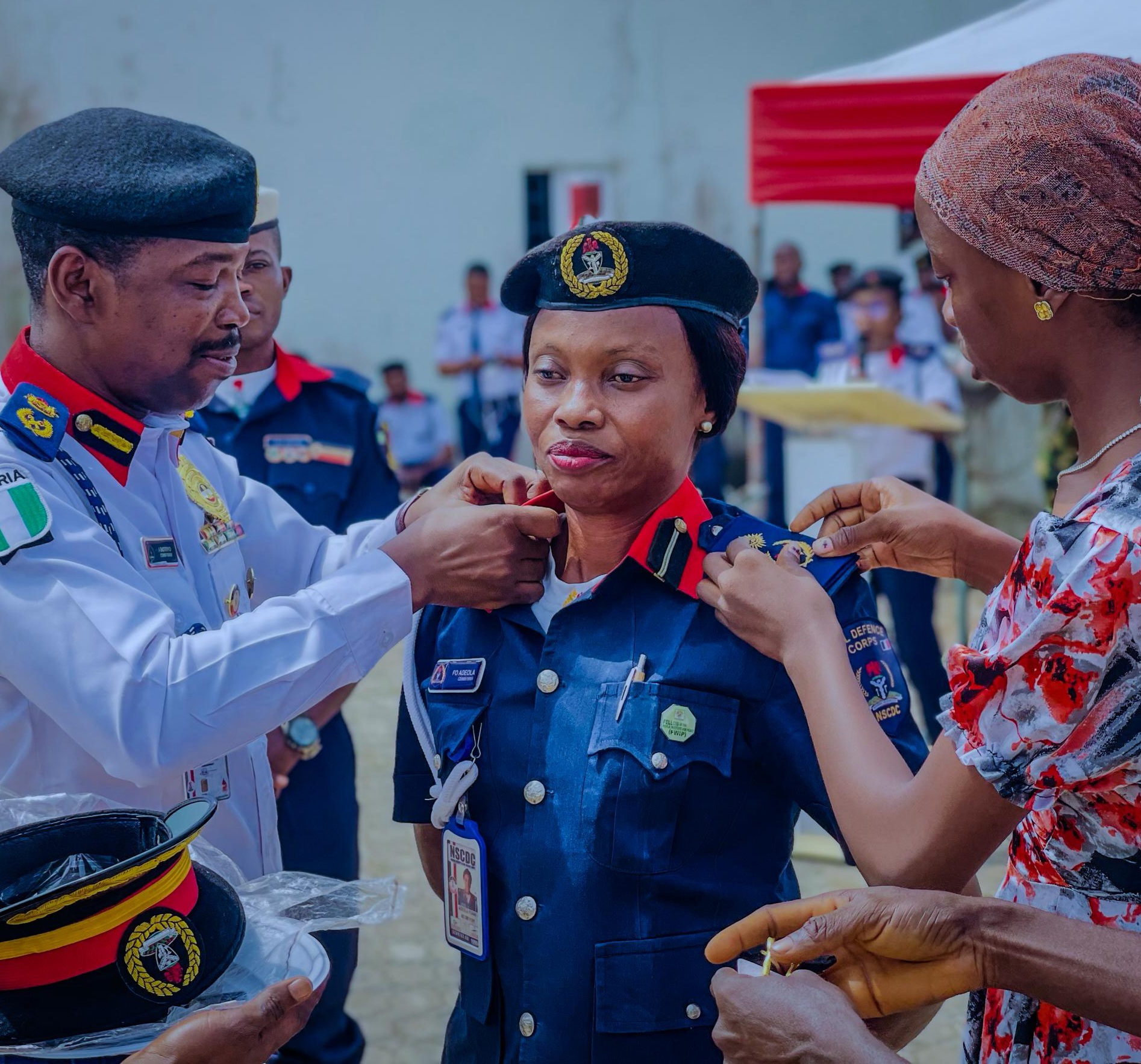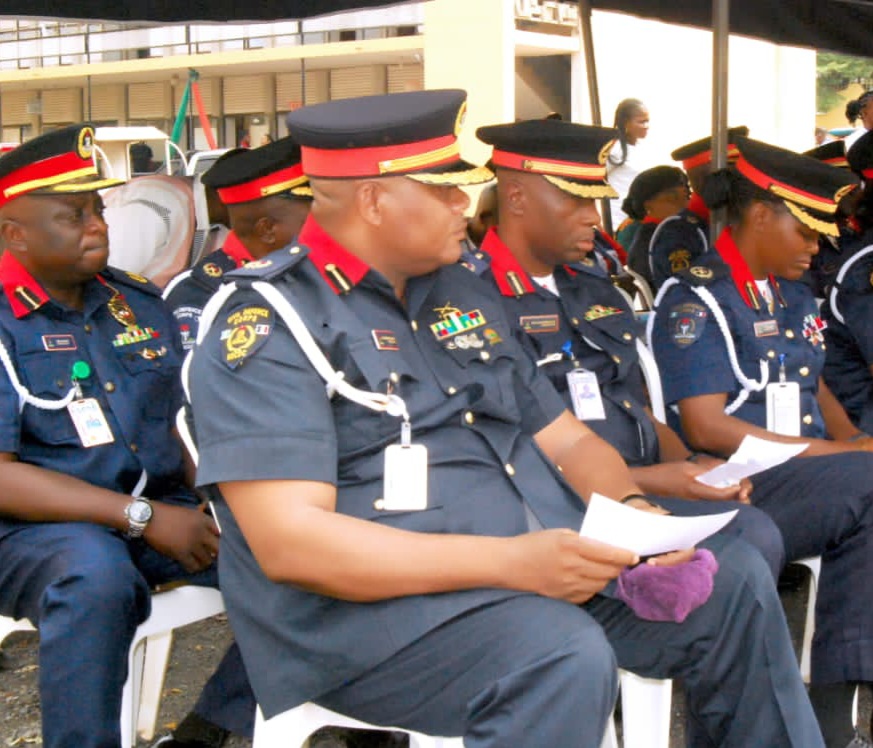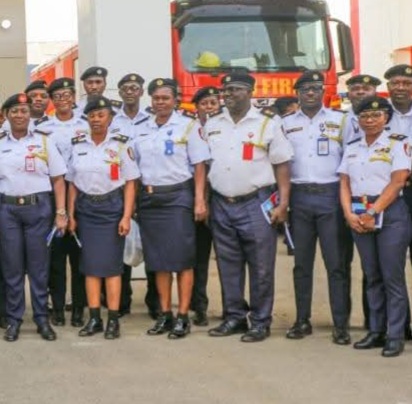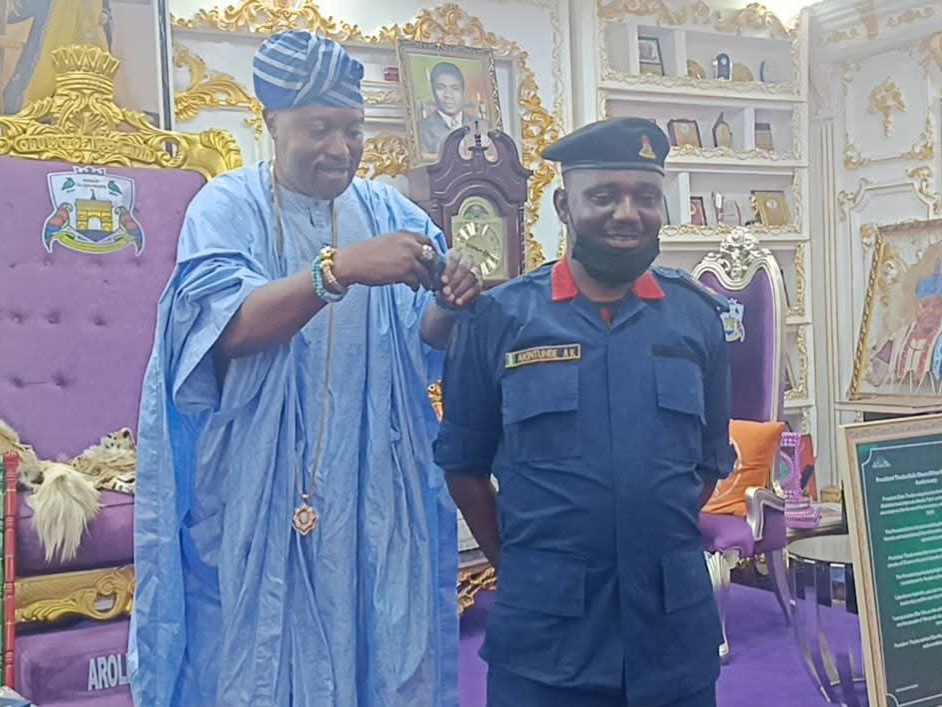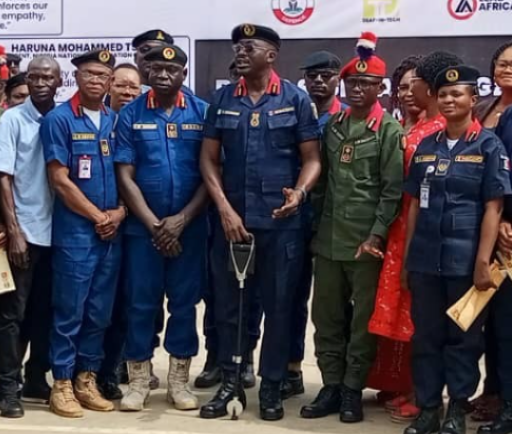
In a significant stride towards inclusive security, the Nigeria Security and Civil Defence Corps (NSCDC), Federal Capital Territory (FCT) Command, has successfully graduated 250 personnel from an intensive five-week training programme in sign language.
The graduation ceremony, held at the NSCDC Headquarters in Abuja, marked a new chapter in the corps’ ongoing efforts to provide people-centered and accessible security services across the country.
FCT Commandant, Dr. Olusola Odumosu, described the training as a major milestone in the corps’ mission to bridge communication gaps and promote inclusivity within the nation’s security landscape.
“This moment represents a defining point in our collective journey toward a more inclusive approach to security. By acquiring sign language skills, our officers are now better equipped to engage with every citizen including those who are deaf or hard of hearing ensuring they feel safe, heard, and valued,” Odumosu stated.
He emphasized that capacity building remains central to the NSCDC’s mandate of delivering modern, responsive, and inclusive security services. Odumosu praised the graduating officers for their commitment to professional development, stressing the long-term significance of the skills acquired.
“Inclusion is essential for effective security. With this training, our personnel have taken a bold step toward ensuring that the voices of persons with hearing impairments are not only acknowledged but understood,” he said. “There are many unheard voices in our communities today, you have gained the ability to listen.”
Odumosu further highlighted the operational benefits of the training, noting that sign language proficiency would enhance not just communication but also intelligence gathering, particularly within vulnerable populations.
“In today’s complex security environment, inclusion is not a luxury; it is a necessity. The ability to engage directly without interpreters enhances both the quality and confidentiality of our interactions with members of the public,” he noted.
The commandant also extended appreciation to Dr. Arowolo Ayoola, founder of Deaf in Tech, whose organisation facilitated the training. He praised the group for its professionalism and commitment to empowering the deaf community.
“Your contributions to the deaf community are deeply appreciated. You provided not just a platform for training, but a pathway toward greater understanding and social cohesion,” Odumosu said.
Encouraging the newly trained officers, he described them as pioneers of a more inclusive security culture. “You are now ambassadors of inclusive security. Let your actions inspire change across other commands. Carry this torch forward.”
The initiative was also lauded by the President of the Nigeria National Association for the Deaf, Haruna Mohammed, who urged other security agencies to emulate the NSCDC’s example.
“Training officers in sign language should be standard practice across all security and paramilitary agencies,” Mohammed said. “It’s not just a communication tool — it’s a fundamental right. We also appeal to the NSCDC to prioritize the recruitment of persons with disabilities.”
Echoing this sentiment, the Executive Secretary of the National Commission for Persons with Disabilities, Ayuba Gufwan, hailed the programme as a bold step toward building a more inclusive society.
“When our security personnel are trained to communicate with all citizens, including those with disabilities, we move closer to achieving a truly safe and inclusive nation,” Gufwan remarked.
Some of the graduating officers also shared their thoughts on the programme. Samuel Idoko, one of the trainees, described the experience as transformative.
“This training has completely changed how I approach my work. I’m now confident in engaging with the deaf community,” he said, expressing gratitude to the commandant for the initiative.
Another graduate, Cynthia Okpara, said learning sign language had long been a dream. “I’m incredibly grateful for this opportunity. With these skills, I can now communicate effectively with deaf citizens it will certainly make my job easier and more fulfilling.”

